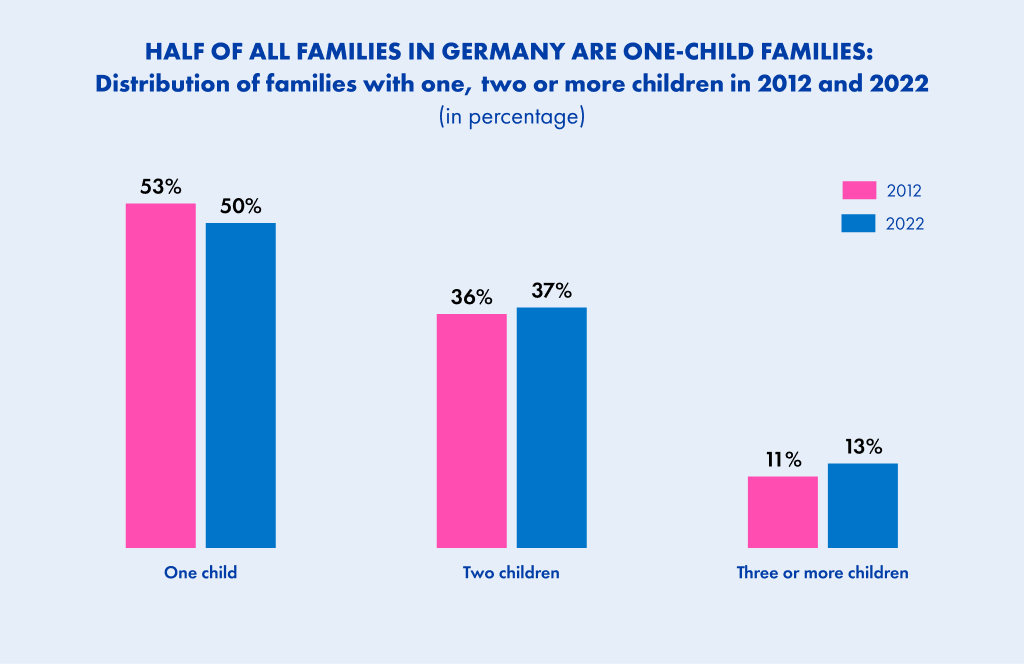Issue #151
Guten Morgen! From flying surveillance balloons to chatbots, which might eventually take over, all the way to the start of a brand new war, and just like that, it’s almost the end of 2023. Welcome to the last Krautshell edition of 2023. Before we go on a month-long Christmas break, we wanted to bring you some information good enough to wrap up the year. In the main article, we have CDU’s latest program in response to the opposition’s stance, a groundbreaking regulation—the European Union’s AI Act—and insights into the German government’s 2024 budget. Lastly, we would like to thank all the new and old members of the Krautshell family. Without you, things would not work the way they do. From the Krautshell team, we wish you a superb holiday season, a very Merry Christmas, and a kickass start to a fantastic new year. Anna Szilvia WHAT TO WATCH THIS WEEK: The CDU’s Big Makeover? Balancing Conservatism and Progressivism The CDU recently presented its fourth basic program, aiming to redefine its political orientation after entering opposition in 2021. The 70-page document titled “Living in Freedom – Safely Leading Germany into the Future” covers various key areas that will shape the party’s future policies. A pivotal point concerns immigration policy. The CDU advocates for asylum procedures in third countries and suggests annually admitting vulnerable people from abroad in a coalition of the willing, without specifying a clear “upper limit”. At the same time, the party emphasizes that the fundamental right to asylum remains untouched. Then there’s the quest for a German “guiding culture” (“Leitkultur”) – kind of like sketching out the ideal roommate profile. Respect for human rights and dignity? Check. Affirming Israel’s existence? Absolutely. But the fine print says, “Adhere to our house rules, or you’re not getting the room key!” Regarding energy policy, the CDU calls for an open-minded approach, emphasizing the necessity for a secure, clean, and affordable energy supply. While not ruling out a return to nuclear power, the party supports the debt brake in the budget, citing it as generational justice. Now, amidst all this, experts are playing pundit bingo! Some see a conservative makeover with a sprinkle of progressivism – a bit like the political equivalent of business at the front, party at the back! Muslim associations are raising eyebrows at the ‘German guiding culture’ talk – strategically bold or potentially losing friends from the middle ground? At the end of the day, experts remind us: Manifestos might be the recipe book, but it’s the election programs that determine the political dinner menu. So, while this manifesto’s causing a stir, the real feast is yet to come! INSIGHTS FROM PARLIAMENT: AI Act: EU sets gold standard … or is it tripping itself up? After intensive marathon negotiations, the European Parliament, the Council of the European Union, and the European Commission finally reached a political compromise on the EU AI Act in their trilogue negotiations. The compromise is paving the way for the world’s first horizontal regulation on Artificial Intelligence. Time pressure leading to all-night negotiations, sometimes lasting up to 22 hours, was created by the Spanish Council Presidency’s goal of achieving a trilogue result while it was still in charge as well as the Commission’s desire to be the first to reach the historic milestone of having comprehensively regulated artificial intelligence. The AI Act follows a risk-based approach: AI systems will therefore be divided into different risk groups. The higher the potential risks of an application, the higher the requirements for providers should be. In comparison to the Commission’s original draft from 2021, the agreed compromise is far more open to innovation and involves significantly fewer bureaucratic burdens for European companies – both for AI developers and their users. The EU hopes its rules will be emulated worldwide. So far, most countries have only issued regulations or decrees. The EU would like to see its AI Act as blueprint for those who find the US regulations too lax and China’s requirements too restrictive. However, future success not only depends on how often it will be copied but mostly on successful implementation. This requires clear regulatory requirements for companies and harmonization with other regulations. Technical work will go on for another two months to specify and finalize the details of the future regulation. THE BIG PICTURE: Finally!!! German Government’s 2024 Budget Compromise Drumroll, please! The German government has finally unwrapped its much-anticipated 2024 budget compromise – a delicate balancing act between fiscal responsibility and ambitious goals. This comprehensive plan seeks to navigate the intricacies of fiscal constraints while advancing climate initiatives, bolstering social cohesion, and providing support to Ukraine amid ongoing tensions. Among its key measures are adjustments to environmentally harmful subsidies, reductions in allocations to climate funds, and trimming incentives such as electric car subsidies and solar support. Additionally, plans include an upsurge in CO2 prices to fortify the climate fund, while phasing out detrimental subsidies and introducing a levy on plastics. Maintaining social standards remains a priority, even as certain departments may face budgetary tightening. It is set to be approved by the Bundestag in January, with a potential temporary suspension of the debt brake due to the Ukraine situation or further flood catastrophe payments in the Ahrtal. But hold your applause; Critics find the compromise insufficient and problematic, arguing that it defers problems to the future by lacking crucial funds for climate protection and transformation. The Free Democratic Party (FDP) achieved its goals, while the Social Democratic Party (SPD) and the Greens had to accept cuts in investments and social benefits, seen as a disadvantage for the economy. This could result in fewer resources in the long term for crucial areas like climate protection and infrastructure. Concerns persist regarding the potential impact on the less privileged due to cuts in social benefits, alongside potential tax relief for higher-income groups. The rapid increase in the CO2 price is seen as a burden without the promised climate compensation. Overall, the compromise is viewed as disappointing, neglecting vital future investments and Germany’s competitiveness. Critics anticipate that the government might need more than just policy manoeuvres to effectively address impending challenges while keeping spirits merry and bright at the same time. If the Prime Minister thought last week was tough, he had a rude awakening this week. Being grilled at the UK’s Covid inquiry over his record as Finance Minister during the pandemic was the least of his worries. The rest of his week was dominated by a critical vote on the Government’s ‘Rwanda Policy’, which has become a totemic test of Rishi Sunak’s authority and hold on his leadership. In a sign of the unease over a potential rebellion over the new treaty, the UK’s Climate Minister flew back from the COP28 climate conference to vote as MPs decided if they would support the PM, or not. Despite fears of failure, the legislation comfortably passed its first legislative stage – no Conservative MPs voted against the legislation, but several did abstain. While this battle was won for now, expect many more divisive fights to come in the new year. The contrast between the Prime Minister and his political opponent Keir Starmer, the Labour Party Leader, could not have been clearer. Keir Starmer, who has consistently been ahead in the polls this year, exuded confidence as he described the government’s Rwanda plan as a “gimmick” and promised a “decade of national renewal” if Labour won the election, which at this stage is looking increasingly likely. Although, the only poll that counts is the one on election day. While the Prime Minister can breathe a sigh of a relief over his immigration plans for now, the plethora of challenges that he faces show no clear signs of abating. Source: destatis.de by Dr. Steven E. Sokol, President and CEO of the American Council on Germany “Domestic Politics in Turbulent Times” 2023 has been a turbulent year – and it has come on the heels of several tumultuous years! We still see signs of lasting disruptions caused by the COVID-19 – in areas such as education, food security, supply chains, and the global economy. The war in Ukraine and now open conflict in Gaza are flashpoints that cannot be ignored. In his groundbreaking Zeitenwende speech on February 27, 2022, German Chancellor Olaf Scholz described the situation Europe as a “historic turning point” – and acknowledged that things would not be the same moving forward. On November 18, 2023, U.S. President Joe Biden published a piece in the Washington Post titled “The U.S. Won’t Back Down from the Challenge of Putin and Hamas.” In it, he noted that “the world faces an inflection point, where the choices we make — including in the crises in Europe and the Middle East — will determine the direction of our future for generations to come.” As 2023 closes, and we look ahead to 2024 it is clear that we are at a critical juncture for democracy. The numerous internal and external challenges to our democratic institutions and governments have the capacity to make or break the democratic values which currently maintain our global order. Starting with Taiwan in January and running through the U.S. presidential election in November, national elections will be held in more than 50 countries and some 3.9 billion people (or 49% of the world population) will be eligible to vote. Public opinion research indicates that faith in democracy and government is waning as 60% of Americans reportedly have little confidence in the political system’s future, while 53% of Germans have less faith in German democracy than ever before. It is clear that the events, developments, and trends which characterized 2023 will prove monumental in the upcoming year. Internalities or Externalities: That is the Question… Germany’s Ampelkoalition has had to navigate two years marred by domestic and international challenges – including pandemic recovery, the war in Ukraine, heightened tensions with China, the conflict in Gaza, climate change, migration, and now an unfolding budget crisis. Heading into a party conference for the Social Democratic Party last weekend, Olaf Scholz had an approval rating of just 20 percent – the worst result ever recorded for a chancellor in German public television’s Deutschlandtrend poll – and the SPD is polling at a new low of just 14 percent, putting the party in fourth place behind the center-right Christian Democrats, the far-right Alternative for Germany, and the Greens. According to a study conducted by the Bertelsmann Foundation, of the more than 450 commitments made by the federal government in its coalition agreement, two-thirds of them have been achieved or are in the process of being fulfilled. This is quite a feat given the steep learning curve for the new government as well as unanticipated external factors like the war in Ukraine. Yet, the Ampel’s time in office has been marred by infighting, public criticism, and now a detrimental court decision by Germany’s Constitutional Court. The ruling that the government’s plan to reuse 60 billion euros from a Covid relief fund to help finance the green transition was unconstitutional has been a major setback for the government. It has called the 2023 budget into question and forced the delay of passing a budget for 2024. The FDP-led Finance Ministry has also imposed a spending freeze on all federal ministries, effectively halting all spending. This situation has tanked approval ratings for the government, and it remains to be seen how the government will navigate its way out of the crisis. It is also unclear how Germany will meet its ambitious climate goals and the other commitments laid out in Scholz’s Zeitenwende speech when the political climate in Germany and the international landscape are rapidly changing. Whether internally caused by infighting among the coalition partners or externally impacted by international developments, the German government needs to quickly reset and chart a clear vision for the years ahead. (After all, we’ve just passed the halfway point for the current government.) Right- and Left-wing Convergence? Among the many elections to be held around the world next year, German voters will take to the polls in June for the European parliamentary election and in September in Brandenburg, Saxony, and Thuringia. Federal elections are slated for the fall of 2025. As of December 12, the AfD was polling at 22 percent in national polls – putting it second to the Christian Democrats. In the eastern part of the country, the AfD is garnering 32 percent in polls – putting it eight percentage points ahead of the CDU. This is significant. Up to now, the AfD has not been able to garner enough support to be the strongest party at the state level. But, that might change in September. On the other end of the political spectrum, earlier this month the Left Party dissolved its faction in the Bundestag when ten members left the party. Sahra Wagenknecht and nine colleagues formed the Bündnis Sahra Wagenknecht and are attracting those who have lost faith in the governing Ampel and other parties like the Christian Democrats and the AfD. The uptick in right-wing support and the co-called “horseshoe effect” that is bringing together the far left and the far right will be important trends to watch in June and September – and the fall of 2025. Mehr Fortschritt wagen The renowned management consultant Peter Drucker noted that “the greatest danger in times of turbulence is not the turbulence; it is to act with yesterday’s logic.” For several years, there have been growing concerns about the internal and external challenges to democracy – from populism at home to the threat of authoritarian regimes abroad – and the waning trust in democratic institutions and practices. These concerns will be front and center as we brace ourselves for another turbulent year. On both sides of the Atlantic, we need strong leadership that recognizes our changed environment and will proactively strive to address these challenges – “daring to make more progress” – with new solutions. And, these solutions need to be communicated clearly. Here are three appointments for next week that you should have on your radar: Instead of the WOOM this week, we wanted to take the time to wish you a and and of course a See you next year. Issue #151


FIRST, AN OUTLOOK FROM CHARLIE:
NOW, SOME SOLID INTEL:
AND WHAT’S UP IN GREAT BRITAIN?
TAKE A BREAK, GIVE YOUR EYES A REST:

THE (GUEST) HOUSE’S VIEW:

LONG STORY SHORT:
OUTLOOK:
When?
What?
December 18th, 2023
FNS on the energy transition
December 19th, 2023
2030 digital compass: your digital decade
December 19th, 2023
Working Party on Telecommunications and Information Society
WHAT’S ON OUR MINDS:




